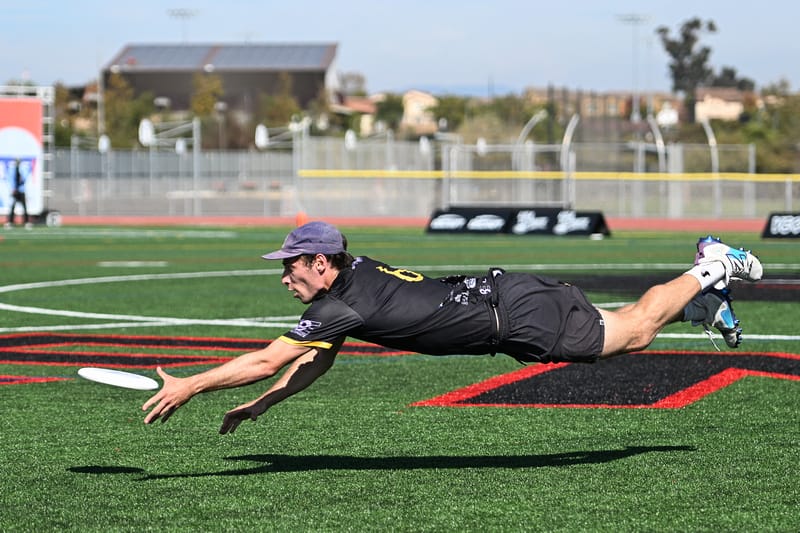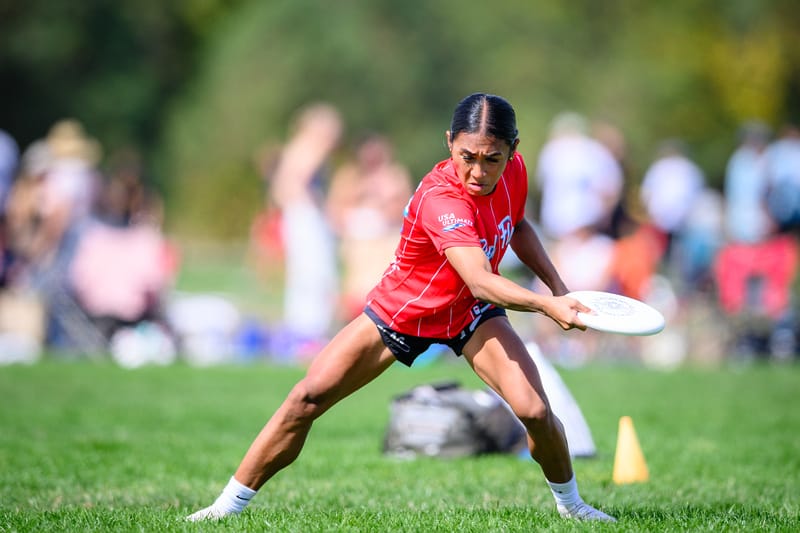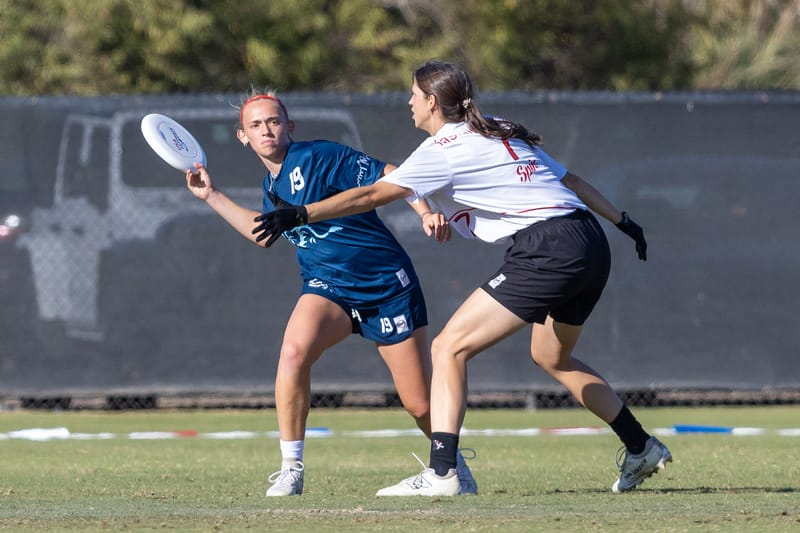The newest stars in the mixed club division
November 15, 2024 by Graham Gordon, Laura Osterlund and Josh Katz in Awards with 0 comments
Ultiworld is pleased to announce our annual Club Awards. While we consider both regular season and postseason performance, because of the nature of the Club division, we weight success in the Series and at Nationals above all else. This year, with an uneven regular season, the postseason emphasis is perhaps greater than ever. The Club Awards are voted on by Ultiworld reporters, contributors, and editors.
Our Breakout Player of the Year may be the hardest-to-define award that we dole out each year. We aim to recognize players typically 25 years old or younger who weren’t widely expected to have a major impact on the club season at the start of the year. While their teammates or local community may have known about their talent level, their performance in the 2024 season thrust them into the national consciousness in a way that raises expectations for their contributions for years to come. Without strict parameters around what constitutes “too well known” at the start of the year, our voters are given the opportunity to decide for themselves who best represented their definition of a true breakout season in the club division.
Player of the Year Award
All-Club First Team
All-Club Second Team
Defensive Player of the Year Award
Offensive Player of the Year Award
Breakout Player of the Year Award
Coach(es) of the Year Award
Club Awards Voting Breakdown
Snubs and Superlatives
2024 Mixed Division Breakout Player of the Year
Zach Singer (Boston Sprocket)

In his third year with Boston Sprocket, and his first in an enlarged, incredibly disc-dominant role, Zach Singer was a vital piece in the Boston offensive attack and one of the best pure offensive handling talents at Nationals. When Singer played at Tufts, he was the do-it-all center handler who could go every-other at any given moment and will their offense to score when the stack couldn’t get anything going. In the club division this season, it was more of the same. Singer was everywhere for Sprocket as he tended to touch the disc on any given offensive possession more than anyone else on the team.
On a Sprocket team that rose to a new level this Nationals, Singer was the driving force of an offensive backfield that rarely turned the disc over. He picked up the disc for Boston’s offensive line every single time they received the pull, and played a huge part in conducting their offensive flow as they worked it down the field. His quickness and agility play a huge part in the fact that he’ll get open instantly for resets to allow Sprocket to switch the point of attack and make huge throws to push the pace of play. As a thrower, Singer was comfortable breaking any mark in the division, and his ability to run the give and go with players like Tannor Johnson-Go on either side of the play opened up a lot of space for Sprocket’s offense. He even got to throw a couple of the crafty hammers and scoobers that made his Callahan video so great.
– Graham Gordon
First Runner-up
Rvee Brillantes (Vancouver Red Flag)

Oftentimes, a potential ‘Breakout’ player’s candidacy is debatable. How strong does a player’s reputation need to be such that their brilliance is expected? In Brillantes’s case, that discussion was dead on arrival. She came out of nowhere this year – seriously, absolutely nowhere: her ulti-verse.com profile lists no rosters other than 2024 Red Flag, and she just graduate high school – to become one of Red Flag’s key players. Her eight goals were fourth on her team, her 16 assists second, and she led the club with seven blocks. Perhaps most importantly, her energy was palpable and endless. Watch any Red Flag game, and you’ll see number 12 tirelessly chasing her mark or running her own defender ragged. With a debut campaign this impressive, the sky’s the limit for Rvee.
– Josh Katz
Second Runner-up
Chagall Gelfand (Minneapolis Drag’n Thrust)

This college season, Chagall Gelfand made big moves that earned her laurels as the Rookie of the Year with Carleton Syzygy. While her first year on Drag’n Thrust was not quite as dominant as her college performance – with teammates who are already established offensive rocks, that is to be expected – but that didn’t stop her from having a breakout season in her first year in the club scene. With the confidence of a player ten years her senior, she showed no signs of intimidation from the pressure put on by some of the best defenders in the division. Not only that, but her patient and communicative handling and field awareness led to high-IQ plays that yielded results. With her skills on an upward trajectory, Gelfand is poised to become a dominant force in this sport. ‘If’ is no longer on the table, it’s only a matter of when.
– Laura Osterlund